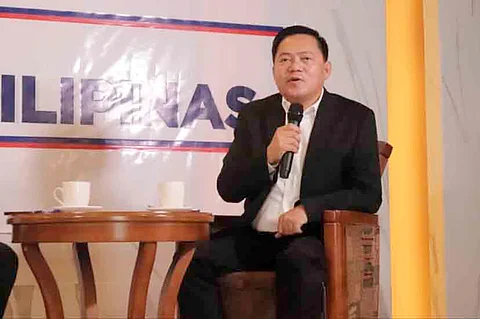
- NEWS
- the EDIT
- COMMENTARY
- BUSINESS
- LIFE
- SHOW
- ACTION
- GLOBAL GOALS
- SNAPS
- DYARYO TIRADA
- MORE

TACLOBAN CITY — More than a decade after super typhoon “Yolanda” caused thousands of deaths, the National Bureau of Investigation (NBI) is still working to identify many of the fatalities.
NBI Regional Director Emeterio Dongallo said the process is painfully slow because identification can only be done through DNA testing, which is only available at the central office in Manila.
“Many of the casualties of typhoon “Yolanda” remain unidentified. Our effort is focused on DNA analysis, especially since the bodies have decomposed after a long period,” Dongallo told the DAILY TRIBUNE.
He added that the process is further hindered because the agency must also obtain tissue samples from relatives of the deceased for matching.
“The identification of cadavers is gradual. It is really slow,” he said. He noted that, in addition to the limitations of testing capacity, all regions send their samples to Manila for analysis.
Dongallo said he met with Tingog Partylist executive director Glenn Capucion to discuss a potential allocation for purchasing DNA testing equipment for the NBI regional office.
“The request will come from the NBI, but we need champions in Congress who can help us advocate for this during budget hearings,” he said.
He emphasized that having DNA testing equipment in Eastern Visayas would be beneficial, especially since the region has experienced more events resulting in mass casualties than other areas.
In addition to typhoon “Yolanda,” he cited the landslide in Guinsaugon, St. Bernard, Southern Leyte, on 17 February 2006, which killed over 1,400 people; and the landslides in Abuyog and Baybay City, Leyte, in April 2022 as examples of incidents with mass casualties.
“If we have the equipment here, we can readily identify the victims when a mass casualty occurs without sending their tissues to Manila,” he said.
“In Manila, samples are processed together with those from other regions. But if we have our own equipment here, we will always be prepared to identify unidentified victims.”
Dongallo added that discussions with Tingog Partylist officials also included the potential provision of equipment for forensic examinations, which, like DNA testing, is currently only done at the central office in Manila.
